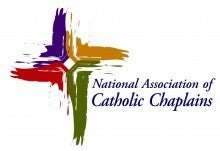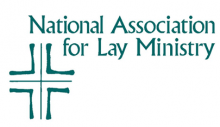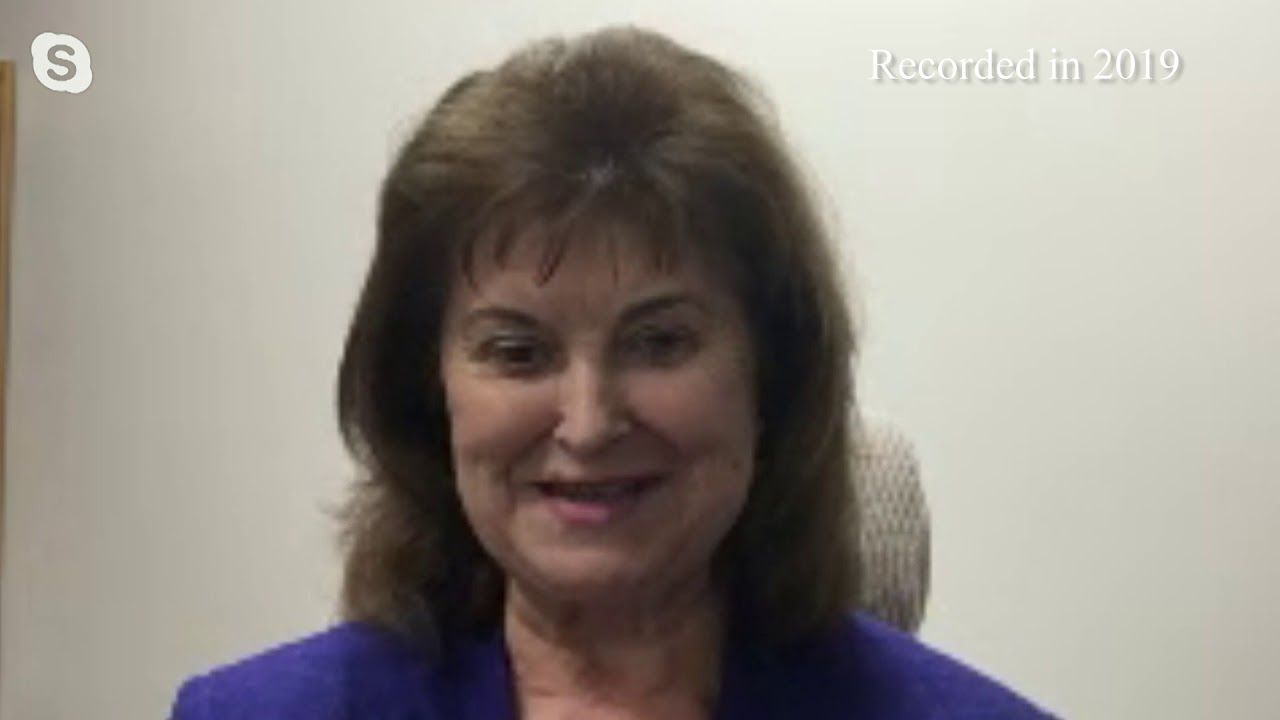In Word and Witness: A professional organization for catechetical leaders that provided networking, resources, and training opportunities for its members and those engaged in catechetical ministry. The organization is a partner of ACLEM. The USCCB Subcommittee approved its certification standards in 2011 and approved their revision in 2018. This organization was formerly known as the National Conference for Catechetical Leadership (NCCL). It ceased operation in 2020.
justice issues: A comprehensive concept that encompasses aspects of moral action and policy in promotion of the common good and the preservation of proper rights and responsibilities of people and groups within a society. Justice issues are often considered in light of realities which threaten the common good and the rights of others.
lay ecclesial minister: As described in the United States Conference of Catholic Bishops Lay Ministry Subcommittee report entitled Lay Ecclesial Ministry: State of the Questions (1999, p. 10; see also Co-Workers, p. 10), a lay ecclesial minister is a fully initiated lay member of the Christian faithful, including vowed religious, who responds to the empowerment and gifts of the Holy Spirit received in Baptism and Confirmation to participate in ministry. Lay ecclesial ministers have prepared themselves through a process of prayer discernment and have received the necessary formation, education, and training to function competently within a given area of ministry. They intentionally bring personal competencies and gifts to serve in the Church’s mission through a specific ministry of ecclesial leadership, and do so with community recognition and support. Furthermore, lay ecclesial ministers are entrusted with a formal and public role in ministry, or have had an office conferred by competent ecclesiastical authority. Additional hallmarks of a lay ecclesial minister include having been installed in a ministry through the authority of the bishop or his representative, perhaps using a public ritual and someone who commits to performing the duties of a ministry in a stable manner and/or who is a paid staff person (full-time or part-time) or a volunteer with responsibility and the necessary authority for institutional leadership in a particular area of ministry.
Leadership Institute: Developed by the USCCB Committee on Evangelization and Catechesis, the Diocesan Educational/Catechetical Leadership Institute, begun in 1997 as a five-day orientation program for new or nearly new diocesan leaders has now expanded into online offerings designed to assist the formation of educational and catechetical leaders and ministers.
limitation: A statement in a self-study or a report of a site liaison that indicates that an organization or diocesan office needs to address a standard, criterion, guideline, process, policy, or procedure to improve the program.
ministerial priesthood: The ministerial or hierarchical priesthood of bishops and priests and the common priesthood of all the faithful participate, "each in its own proper way, in the one priesthood of Christ." While being "ordered one to another," they differ in essence (cf. Lumen gentium, no. 10). While the common priesthood of the faithful is exercised by the unfolding of baptismal grace—a life of faith, hope, and charity, a life according to the Spirit—the ministerial priesthood is at the service of the common priesthood. It is directed at the unfolding of the baptismal grace of all Christians. It is a mission of service in the likeness of Jesus who came to serve and not be served. The ministerial priesthood is a privileged means by which Christ unceasingly builds up and leads his Church in prolonging his mission throughout time. For this reason, it is transmitted by its own sacrament, the Sacrament of Holy Orders (cf. Catechism of the Catholic Church, nos. 1542, 1547).
The characteristics that differentiate the ministerial priesthood of bishops and priests from the common priesthood of the faithful may be summarized in the following fashion: (1) the ministerial priesthood is rooted in the apostolic succession and vested with the faculty and the responsibility of acting in the person of Christ, the Head and the Shepherd and (2) it is a priesthood that renders its sacred ministers servants of Christ and of the Church by means of authoritative proclamation of the Word of God, the administration of the sacraments, and the pastoral direction of the faithful. In other words, the ministerial priesthood continues the mission received by the Apostles from Christ. For these reasons, the path of formation for seminarians is categorically distinct from that of candidates for lay ecclesial ministry. In the same way, the lay ecclesial minister necessitates a program of formation proper to his or her form of ministry or service in the Church. Nevertheless, the formation of both seminarians and lay ecclesial ministers, while distinct, is rooted in the common four dimensions of formation.
ministry formation program: A program to assist the participants with understanding their gifts, call, role, and mission in the Church and in the world, and with developing skills to respond to the call. Components of a program include a mission, goals, and objectives based on the perspectives of the Vatican II and post-conciliar documents, and the needs of the local Church; a curriculum based on the program's mission and its goals and objectives that integrate the four dimensions of formation cited in Co-Workers in the Vineyard of the Lord—human, spiritual, intellectual, and pastoral—formation; a program director who administers the program; instructional faculty who assist in the formation process; and sufficient resources for the program to operate according to its mission.

National Association of Catholic Chaplains (NACC): The NACC advocates for the profession of spiritual care and educates, certifies, and supports chaplains, clinical pastoral educators, and all members who continue the healing ministry of Jesus in the name of the Church. The USCCB Subcommittee approved its certification standards in 2016. NACC also provides resourcing for ministry formation for pastoral care givers in other settings, including palliative care, care for those who are at home, and elder care. It offers additional certification for Catholic veterans chaplains and, in coordination with the Catholic Prison Ministries Coalition, to prison chaplains.

National Association for Lay Ministry (NALM): A professional organization that supports, educates, and advocates for lay ministers and promotes the development of lay ministry in the Catholic Church. The organization is a partner of ACLEM. The USCCB Subcommittee approved its certification standards in 2011 and approved their revision in 2018.

National Association of Pastoral Musicians (NPM): A membership organization composed primarily of musicians, musician-liturgists, clergy, and other leaders of prayer. NPM is devoted to serving the life and mission of the Church by fostering the art of musical liturgy in Catholic worshiping communities. The organization is a partner of ACLEM. The USCCB Subcommittee approved standards and procedures in 2011 and approved their revision in 2018.

National Federation for Catholic Youth Ministry (NFCYM): An organization of diocesan, regional, and national structures encompassing the United States and its territories that strives to raise awareness of and foster the ongoing development of ministry to, with, by, and for youth. The organization is a partner of ACLEM. The USCCB Subcommittee first approved its certification standards in 2011 and approved their revision in 2018.
ongoing formation: The ongoing program of academic studies, days of reflection or retreat, lectures, readings, workshops, and other activities that enhances the competencies of specialized ministers. Ongoing formation is often understood as continuing education. This formation should integrate a candidate's self-evaluation and growth plan for each of the four dimensions of formation of Co-Workers in the Vineyard of the Lord: human, spiritual, intellectual, and pastoral.
organization: A national professional organization of specialized ecclesial ministers or an organizational structure in a region or state Catholic conference that submits certification standards or certification standards and procedures to the USCCB Subcommittee for approval.
pastoral formation: One of the four dimensions of formation. Pastoral formation cultivates the knowledge, attitudes, and skills that directly pertain to effective functioning in the ministry setting and that also pertain to pastoral administration that supports direct ministry (Co-Workers, p. 47).
peer review / peer review: See 'reviewer / review'.
periodic review cycle: A period, generally of seven years, during which an organization or diocesan office strives to fulfill the recommendations of the last periodic review and to respond to changing needs of the local Church and participants.
policy: A set of rules and/or directions in a designated area congruent with standards, procedures, and guidelines by which decisions are made.
procedure: A set of mandatory steps to be followed in a regular and defined order for the accomplishment of a designated purpose.
recommendation: An advisory course of action for improvement included in a peer review committee report and/or USCCB Subcommittee notification of decision letter.
renewal of certification: A process through which candidates certified by the diocese or organization demonstrates their commitment to maintain and enhance the competencies called for by certification standards and requirements. Renewal of certification takes place after a period of time designated by the organization or diocesan office.
report : An oral or written presentation to discuss findings and other details regarding a program’s process and activities related to ministry formation and certification which can assist the program and the subcommittee in its awareness of, and response to, programmatic needs.
review: The formal process of assessment or examination of all components of an organization or diocesan office to recognize strengths and limitation and to evaluate whether the organization or office is in compliance with USCCB Subcommittee recommendations.
reviewer: A reviewer appointed by the USCCB Subcommittee who meets established criteria and meets virtually or in-person with organization or diocesan office to advise and consult with those involved in the certification process. A reviewer is part of team charged with developing a presentation or report to the USCCB Office, and what is observed in the review of the program.
role of bishop: See Glossary Grid on endorsement, appointment, commissioning and authorization.
self-study process: A period of time within which an organization or diocesan office director and a certification commission/committee carefully examine all the components of the office for compliance with USCCB Subcommittee standards, recommendations, policies, and procedures; identify the strengths and limitations; and make recommendations for improving quality.
self-study report: A report written by an organization or diocesan office director and certification commission/committee stating the results of the self-study process and the office's compliance with USCCB Subcommittee recommendations. The report also includes a description of the strengths, limitations, noncompliance with standards, and recommendations to improve or change the office.
spiritual formation: One of the four dimensions of formation. Spiritual formation aims to arouse and animate the hunger for holiness, desire for union with the Father through Christ in the Spirit, daily growing in love of God and neighbor in life and ministry, and the practices of prayer and spirituality that foster these attitudes and dispositions. It promotes and strengthens that fundamental conversion that places God, and not oneself, at the center of one's life. Openness to this ongoing conversion is a prerequisite for fruitful spiritual formation. (See Co-Workers, p. 38.)
sponsor: The authority that partially or totally finances a ministry formation program so that it can operate.
standards: Criteria established by which the competence of ministers is assessed and evaluated for certification. Each of the four pillars of formation—human, spiritual, intellectual, and pastoral—is to be addressed in development of these criteria.(See Co-Workers, p. 34.)
statement of approval: A statement given to dioceses and organizations whose standards and procedures for certification have been approved. The statement lists their name, the name of the role or roles approved the year they were approved, and the year their approval ends. See also See Glossary Grid on accreditation, certification and approval.
synodal: From the Greek word “synod,” meaning “to walk together,” this term, in an ecclesial context, refers to processes, structures, conversations or other engagements in the life of the Church which are based on the participatory nature of the Church as the People of God in communion. This participatory role is based on the nature of co-responsibility of all the faithful for the life of the Church, and the charisms or gifts given under the inspiration of the Holy Spirit to all the Church’s members and to the Church as a whole. It is expressed under the guidance and leadership of the authoritative magisterium of the Church. In exercising synodality, the church is “called to give expression to the participation of all, according to each one’s calling, with the authority conferred by Christ on the College of Bishops headed by the Pope. Participation is based on the fact that all the faithful are qualified and called to serve each other through the gifts they have all received from the Holy Spirit.” (cf. International Theological Commission, “Synodality in the Life and Mission of the Church,” no. 67. March 2, 2018).
The nature of how synodality is exercised varies with ecclesial context. In regard to the processes of USCCB approval of certification standards, it refers to the procedures established for evaluation for approval in a way which encourages dialogue and genuine engagement on the part of members of the USCCB Subcommittee and the Office of Certification, together with the representatives and leaders of organizations and dioceses with approved standards, or those which are seeking to develop standards. It also refers to the approach taken regarding consultations on ministry formation when these are requested. The purpose is not only to ensure a good practice with respect to dialogue and the promotion of a collegial process, but to use such engagements as an opportunity for the participants to discern together the work of the Holy Spirit: “The … members of the People of God who take part in [synodal assemblies] are responding to the summons of the Lord, listening as a community to what the Spirit is saying to the Church through the Word of God which resonates in their situation, and interpreting the signs of the times with the eyes of faith. In the synodal Church the whole community, in the free and rich diversity of its members, is called together to pray, listen, analyze, dialogue, discern and offer advice on taking pastoral decisions which correspond as closely as possible to God's will” (cf. International Theological Commission, “Synodality in the Life and Mission of the Church,” no. 68. March 2, 2018).
USCCB Subcommittee on Certification for Ecclesial Ministry and Service: This USCCB Subcommittee has a mandate from the USCCB to establish, review, and approve standards and procedures to be used on a voluntary basis by dioceses and national organizations for the certification of ecclesial ministers. It also offers consultative services aimed at improving the quality of lay ministry formation programs that are sponsored by dioceses and academic institutions.
USCCB Subcommittee-approved: See Glossary Grid on accreditation, certification and approval.
Updated: April 2021








